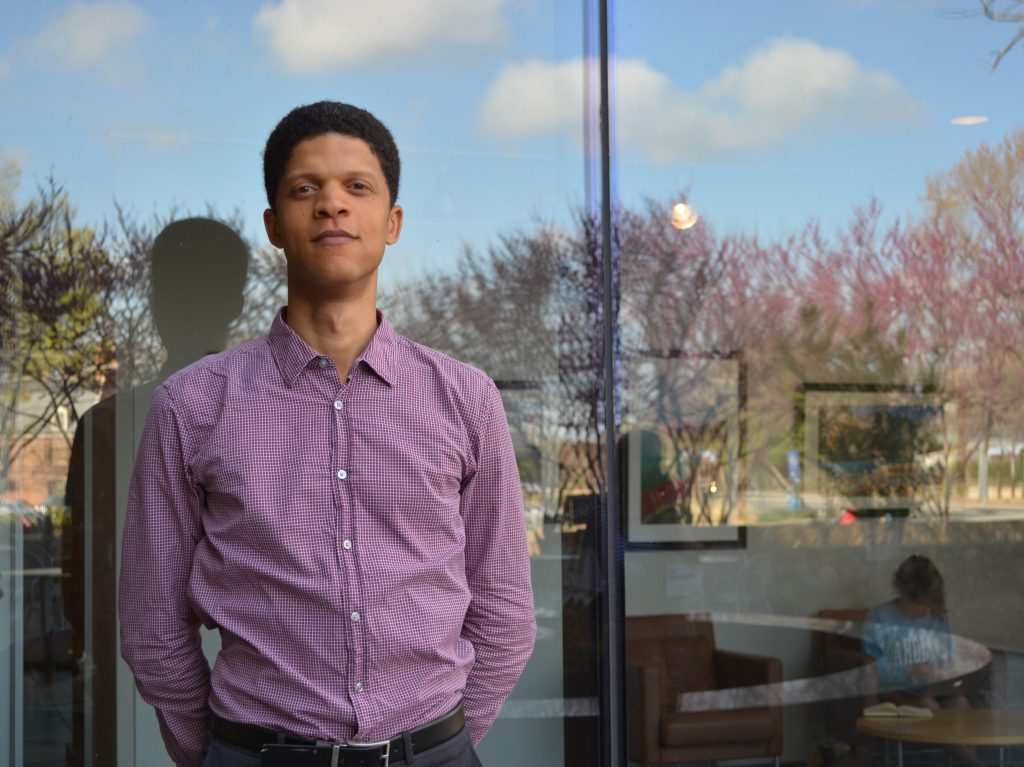Rahsaan Maxwell Takes a Transnational Look at How Societies Respond to Minority and Immigrant Populations
January 23, 2018UNC Global Affairs
 Rahsaan Maxwell, associate professor of political science
Rahsaan Maxwell, associate professor of political science
How do societies cohere? How do they maintain? For Rahsaan Maxwell, associate professor of political science at the University of North Carolina at Chapel Hill, those questions have always been at the top of his mind.
Growing up in Manhattan, Maxwell’s upbringing was diverse in every way. “You could be eating Thai food one day and sushi the next,” he said. “The approach to culture in New York wasn’t so rooted or connected to history as it is other places.”
Maxwell traveled to Europe for the first time during his undergraduate career at the University of Pennsylvania. He recalled being stunned at the value placed on history in everyday life there.
“History was so important to the way people did things,” Maxwell said. “Even down to what and how you’re eating. It wasn’t the same à la carte approach to culture.”
From then on, Maxwell knew he wanted to study societies, how they evolve over time and how individuals fit within them. Maxwell has focused his academic career on the politics of ethnic, religious and immigrant-origin minorities in Western Europe, using the United States for comparison.
“Increasingly, the way I look at it is on a very in-group, out-group basis,” Maxwell said. “Every society has them, it’s just a question of how that plays out.” He said the similarities in history, institutions and norms between the U.S. and Western Europe lend themselves to comparison when discussing immigrant and minority populations.
While conducting research in France as part of his graduate and doctoral fieldwork at the University of California, Berkeley, Maxwell saw immigrants just starting to claim their space in society.
“In a sense, it’s like Europe was almost 40 years behind the U.S.,” he said. “What was happening in Europe then [early 2000s], and what is ongoing now, is like the civil rights movement in the United States, in that marginalized communities are beginning to claim their rights.”
In other respects, Maxwell argues the U.S. has just begun to catch up to the populist right-wing movements that have emerged across Europe since the 1970s. “In many ways, [the election of] Trump was following on the European trend.”
The U.S.-Europe comparison is particularly striking as President Trump attempts to limit immigration. For most of the 20th century, the U.S. had more generous immigration policies than Europe and was proud of its relatively successful immigrant integration outcomes. However, recent events on both sides of the Atlantic have thrown the traditional consensus into chaos.
“Some European nations have tried more explicit policy with a point system based on socioeconomic characteristics, but it’s not clear if that’s actually doable,” Maxwell said. “It’s hard to say who the U.S. should be taking its cues from.”
Although Maxwell has made these observations based on his research, he does not intend to move into a career building immigration policy. His fellowships with the Council on Foreign Relations and the German Marshall Fund gave him valuable exposure to the policy world but also highlighted that his main interest is in the cultural sphere and how different groups relate to each other..
Maxwell recently did a comparative study of racial equality in the U.S. and France through the lens of media coverage of professional men’s tennis players. Last summer, he traveled to Europe to work in Normandy, France, on a project examining French school lunches. According to Maxwell, the governmental program is designed not only to provide better nutrition, but essentially to “teach kids how to be French.”
“It’s so interesting to me to see how societies maintain their culture and how that plays out in peoples’ lives,” Maxwell said.
This story first appeared in the 2018 issue of Carolina Passport.
